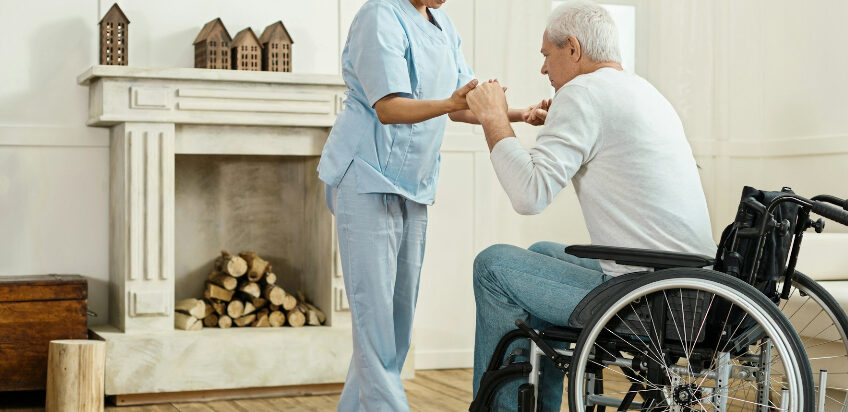Ensuring the safety and well-being of elderly family members in nursing homes is a top priority for many families. Unfortunately, nursing home injuries can and do occur, sometimes as a result of neglect or abuse. Understanding how to recognize these injuries and knowing what steps to take can make a significant difference in protecting your loved one. This comprehensive guide covers common types of nursing home injuries, signs of neglect and abuse, legal options for addressing these issues, and how to choose a safe nursing home in New Jersey.
Common Types of Nursing Home Injuries
Falls and Fractures
Falls are a leading cause of injury in nursing homes, often resulting in fractures, particularly hip fractures. These injuries can lead to severe health complications and reduced mobility.
- Causes: Slippery floors, poor lighting, cluttered walkways, inadequate assistive devices, or lack of supervision.
Bedsores (Pressure Ulcers)
Bedsores, or pressure ulcers, develop due to prolonged pressure on the skin, commonly affecting bedridden or immobile residents.
- Causes: Inadequate repositioning, poor hygiene, and lack of proper bedding.
Dehydration and Malnutrition
Proper nutrition and hydration are critical for elderly health. Dehydration and malnutrition can lead to a host of health issues, including weakened immune systems and increased risk of infection.
- Causes: Neglect, inadequate staffing, or failure to provide adequate food and fluids.
Medication Errors
Incorrect medication administration can cause adverse drug reactions, worsening of medical conditions, or even fatal overdoses.
- Causes: Miscommunication, understaffing, or lack of proper training.
Infections
Infections such as urinary tract infections (UTIs), respiratory infections, and sepsis can spread quickly in a nursing home environment.
- Causes: Poor hygiene practices, inadequate infection control measures, and delayed medical treatment.
Physical and Emotional Abuse
Abuse can manifest as physical injuries like bruises, cuts, and broken bones or emotional distress, including anxiety, depression, and withdrawal.
- Causes: Staff misconduct, lack of proper vetting, and inadequate supervision.
Recognizing Signs of Neglect and Abuse
Physical Signs:
- Unexplained bruises, cuts, or burns
- Frequent infections or repeated hospitalizations
- Sudden weight loss or signs of dehydration
- Bedsores or poor hygiene
Behavioral Signs:
- Withdrawal from social interactions
- Sudden changes in mood or behavior
- Fearfulness around certain staff members
- Reluctance to speak openly in front of caregivers
Environmental Signs:
- Unsanitary living conditions
- Poorly maintained facilities
- Overcrowded or understaffed units
- Lack of basic necessities like clean clothing and bedding
Legal Options for Addressing Nursing Home Injuries
Documenting the Evidence
- Keep detailed records of any injuries, including dates, times, and descriptions.
- Take photographs of visible injuries and poor living conditions.
- Gather medical records and reports from healthcare providers.
Reporting to Authorities
- New Jersey Office of the Ombudsman for the Institutionalized Elderly: This office investigates complaints and advocates for the rights of elderly residents.
- New Jersey Department of Health: Report any health and safety violations to the department, which regulates nursing homes in the state.
- Local Law Enforcement: In cases of suspected abuse or serious neglect, contact local police.
Filing a Lawsuit
- Consult with a personal injury attorney specializing in elder law and nursing home abuse cases. They can help determine if there is a viable case for a lawsuit based on negligence or abuse.
- Types of Lawsuits: These can include personal injury claims, wrongful death claims, and class action lawsuits if multiple residents are affected.
Pursuing Compensation
- Medical Expenses: Coverage for hospital bills, rehabilitation, and ongoing medical care resulting from the injury.
- Pain and Suffering: Compensation for physical pain and emotional distress.
- Punitive Damages: In cases of gross negligence or intentional harm, courts may award punitive damages to punish the wrongdoers and deter future misconduct.
Choosing a Safe Nursing Home in New Jersey
Research and Visit Facilities
- Online Resources: Use websites like Medicare’s Nursing Home Compare tool to research facilities’ ratings and inspection reports.
- Facility Tours: Visit potential nursing homes to observe the environment, interact with staff, and assess cleanliness and safety.
Ask Key Questions
- Staffing Ratios: Inquire about the staff-to-resident ratio to ensure adequate care.
- Staff Training: Ask about the training and qualifications of the caregiving staff.
- Resident Activities: Ensure the facility offers a variety of activities and social opportunities for residents.
Monitor Ongoing Care
- Regular Visits: Visit your loved one frequently to monitor their care and well-being.
- Communication: Maintain open communication with the nursing home staff and administrators.
- Advocacy: Be an advocate for your loved one’s needs and promptly address any concerns or issues that arise.
Conclusion
Recognizing and addressing nursing home injuries is essential for protecting the well-being of elderly residents. By understanding common types of injuries, knowing the signs of neglect and abuse, and being aware of legal options, families can take proactive steps to ensure their loved ones receive the care and respect they deserve. Choosing a reputable nursing home and remaining vigilant in monitoring care are crucial components of safeguarding elderly family members in New Jersey. If you suspect neglect or abuse, consult with an experienced attorney to explore your legal options and pursue justice for your loved one.
